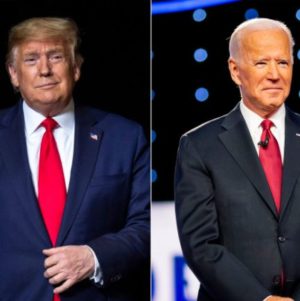
(By John Garziglia) Every two years as federal election time rolls around, I realize that I have forgotten many of the nuances of the FCC’s political broadcasting rules. You may be the same so let’s take a broad look at what the FCC’s political broadcasting rules expect of broadcast stations between now and Election Day.
As Radio Ink reported in “FCC Politically-Incorrect Inaction” almost a month ago, the FCC’s predominate regulatory emphasis this election season appears to be the immediate upload, to the political file portion of the online public file, requests for political time and the disposition of those requests. In the past month, the FCC has imposed upon numerous radio broadcasters, both big and small, significant compliance plan burdens through consent decrees for failures to immediately upload political file material. The compliance plans require written employee operating procedures, compliance checklists, compliance manuals, employee compliance training programs, compliance reports with spreadsheets and detailed descriptions of non-compliance, all to be submitted to the FCC for review. It is far preferable for a broadcaster to adopt its own compliance procedures rather than being forced by the FCC to do so, possibly with a fine or forfeiture in the future.
At the risk of oversimplification, this political broadcasting rule nutshell below is a good place to start:
- A broadcast licensee must provide reasonable access to federal legally-qualified political candidates.
- When any legally qualified candidate makes a use of a broadcast facility during a non-exempt program, then an opposing candidate is entitled to make a request for equal opportunities.
- During the sixty-day political window preceding the general election (starting on September 4th this year), a legally qualified candidate for federal, state or local office purchasing advertising in which the candidate makes a “use”, i.e., is identifiable by voice or picture, must be sold at the station’s lowest unit charge for the particular class of time purchased.
- There must be a full disclosure of the station’s selling practices to all political advertisers.
- A “use” cannot be censored.
- All ads must bear the proper sponsorship identification.
- Documentation of each firm request for political time or issue advertising, its terms and disposition, must be uploaded to the station’s online political file. The FCC staff policy is to interpret “immediate” as by the next business day.
If your management personnel who are responsible for compliance with the FCC’s political rules do not understand any part of that nutshell above, then encourage them to dive more deeply into the FCC’s political rules and nuances. The NAB’s Political Broadcast Catechism and my law firm’s Political Broadcast Manual are both good places to start.
The FCC’s lowest unit charge rules are possibly the most confusing part of the FCC’s political rules. The bedrock principle of the lowest unit charge requirement is to treat a political advertiser purchasing just one spot the same as your most favored commercial advertiser, who for example, may have purchased hundreds of spots in the same class of time.
Determining the various classes of time sold by a radio broadcast station is often difficult. Classes of time range the gamut from station to station. Pre-emptible and not-pre-emptible spots are different classes of time. Morning drive and run-of-schedule are different classes of time. Just keep in mind that the FCC’s rules require a full disclosure of all classes of time available to a political advertiser. The good news with lowest unit charge and classes of time issues is that, at least for now, the FCC takes a proactive approach and welcomes calls from broadcasters seeking a determination of the actual lowest unit charge for a particular class of time.
That gentle approach is not present, however, when it comes to sponsorship ID omissions, particularly with issue advertising. Election seasons are replete with PAC ads and issue advertising. While lowest unit charge obligations do not attach to non-candidate advertising, the FCC made it clear in its April 2020 Clarification of its 2019 Decision that extensive information regarding issue ads must be uploaded to the political file portion of the online public file.
Another area of confusion is the FCC’s equal opportunity rule exemptions of certain on-air appearances by political candidates. The FCC exempts bona fide newscasts, bona fide news interviews, bona fide documentaries and on the spot coverage of bona fide news events from its equal opportunity rules. As a generalization, if a candidate appearance is on a regularly-scheduled program, and the program content is dictated by journalistic standards and not by the candidate, the candidate appearance likely falls within the exemption. At the other extreme, if the candidate is simply allowed an open mic while the program’s host gets coffee, or a candidate’s taped program is broadcast, neither is likely to fall into the bona fide aspect of the exemption, and opposing candidates for the same office will be entitled to equal opportunities.
Syndicated or network programming feeds of candidate and issue advertising are a problematic area. Some programming suppliers are taking buys for issue and political advertising and not sending through required political file documentation to the station. The FCC does not regulate networks, syndicators or advertising agencies and holds the radio station itself responsible for all content broadcast over its station and the immediate upload political information to the online public file regardless of the source of the program sends it through. After a spate of such undocumented political and issue-advertising feeds earlier this year, reputable program suppliers hopefully now understand that they must forward political file documentation to their affiliates.
A final thought for those stations that do not have settled corporate procedures in place for handing political and issue advertising. Designate one person responsible for all political and issue advertising and establish an iron-clad rule that nothing airs that has not been cleared by that person. A late time-stamped upload to the online public file cannot be undone and has consequences for the licensee. The FCC has made clear that a failure to immediately upload requests for, and dispositions of, political and issue advertising time is a serious, significant rule violation. While there is a lot to contend with respect to the FCC’s political rules, a priority must be putting in place procedures now to insure that all political and issue time buys get immediately uploaded this election season to the station’s online public file.
John Garziglia is a communications attorney at Womble Bond Dickinson and can be reached at (202) 857-4455 or [email protected]







I’ve always had a question. If you sell a package of commercials to a client that features say, “buy one, get two free”. Does this apply to political as well.